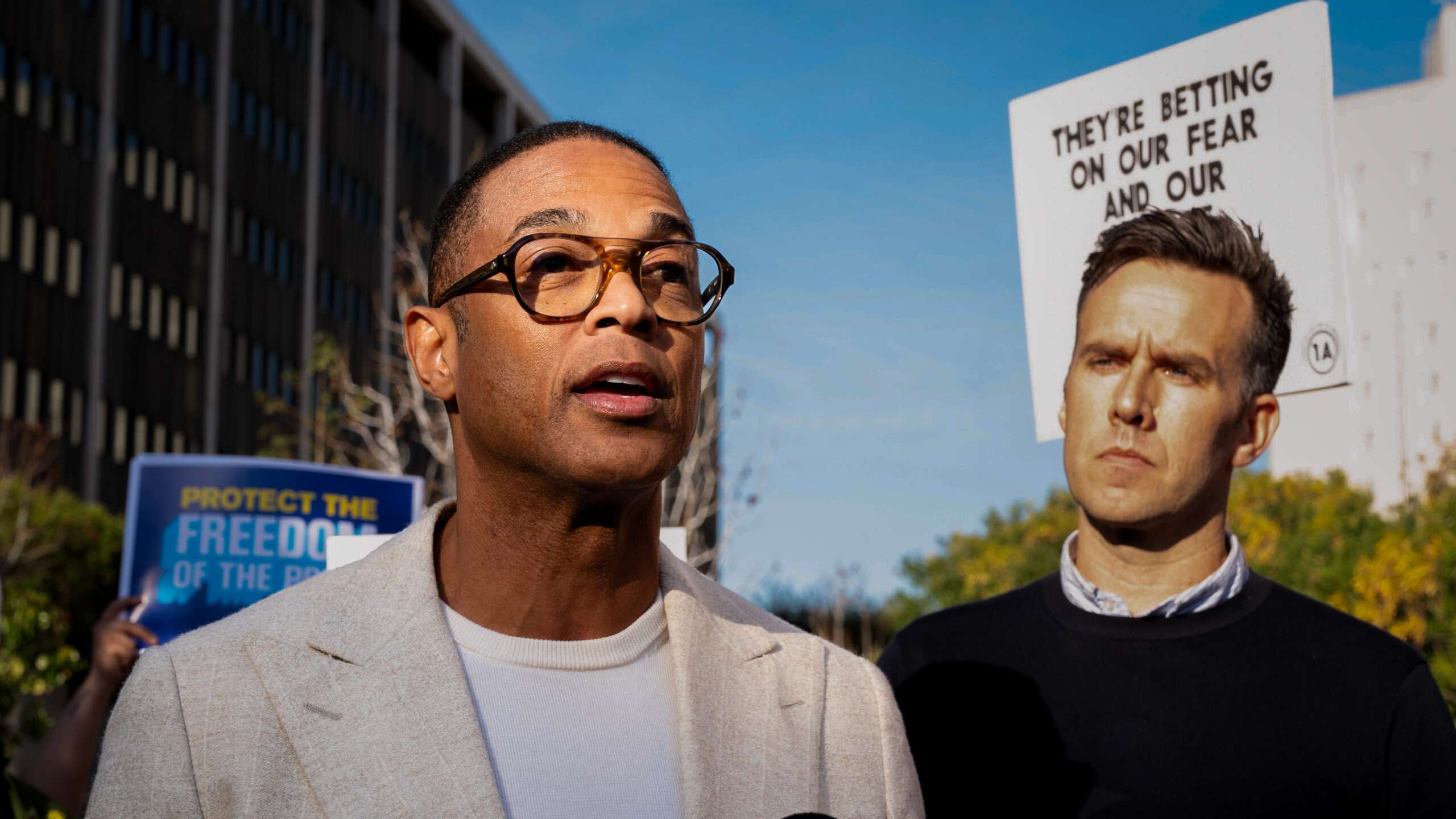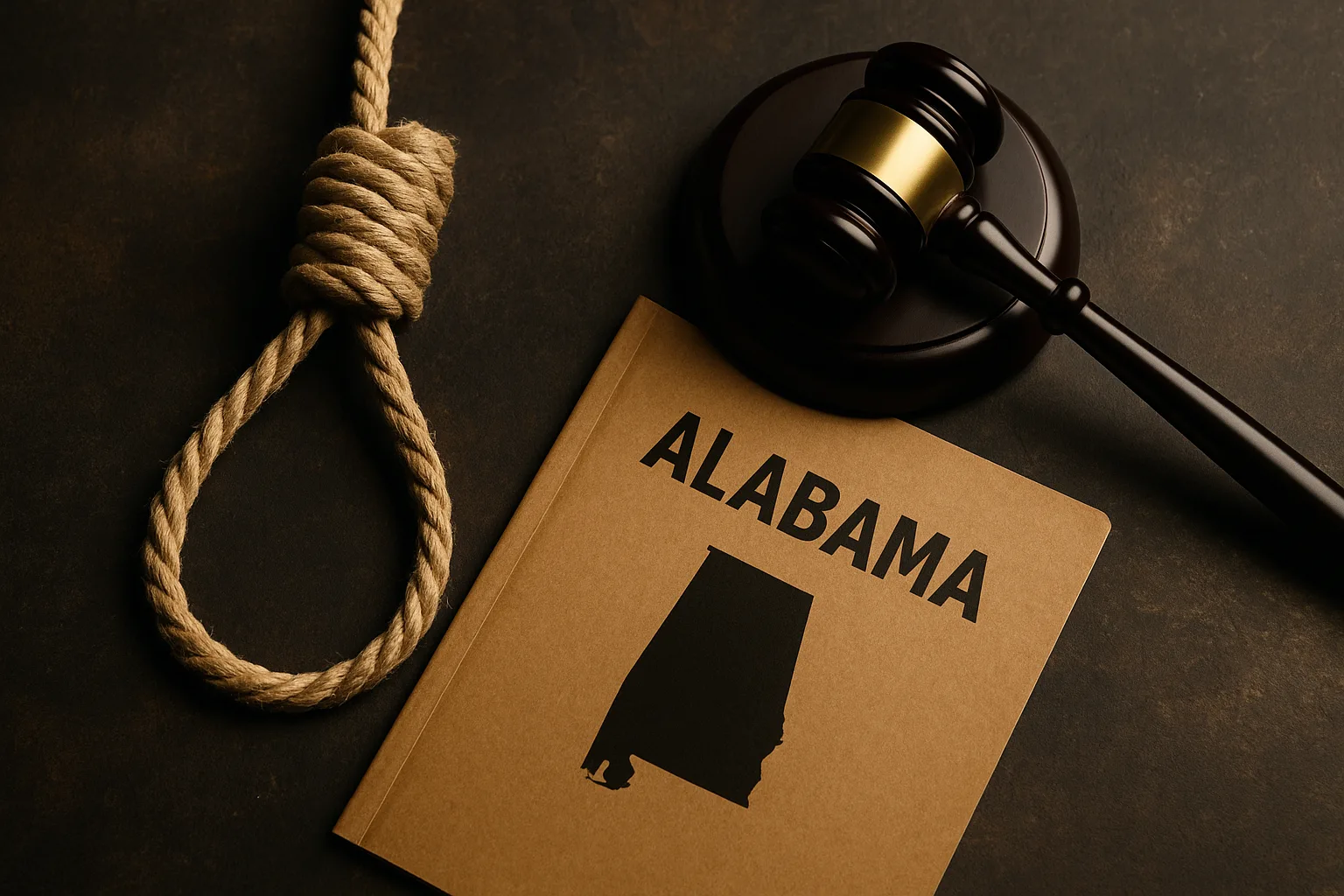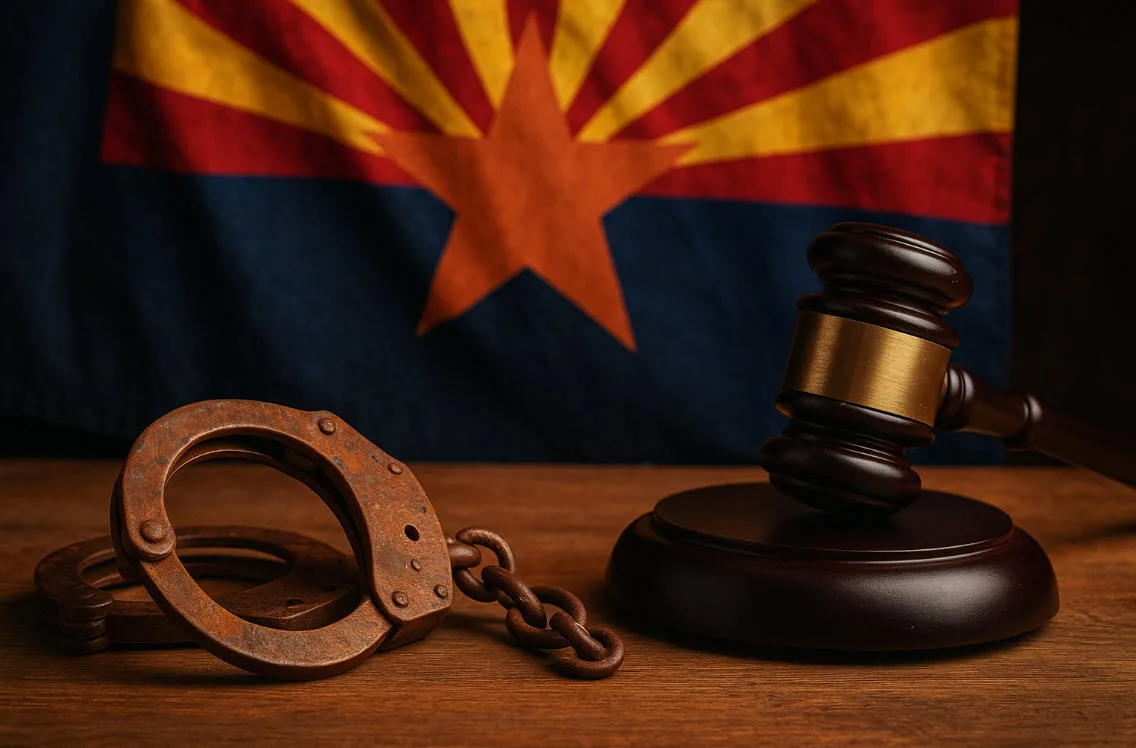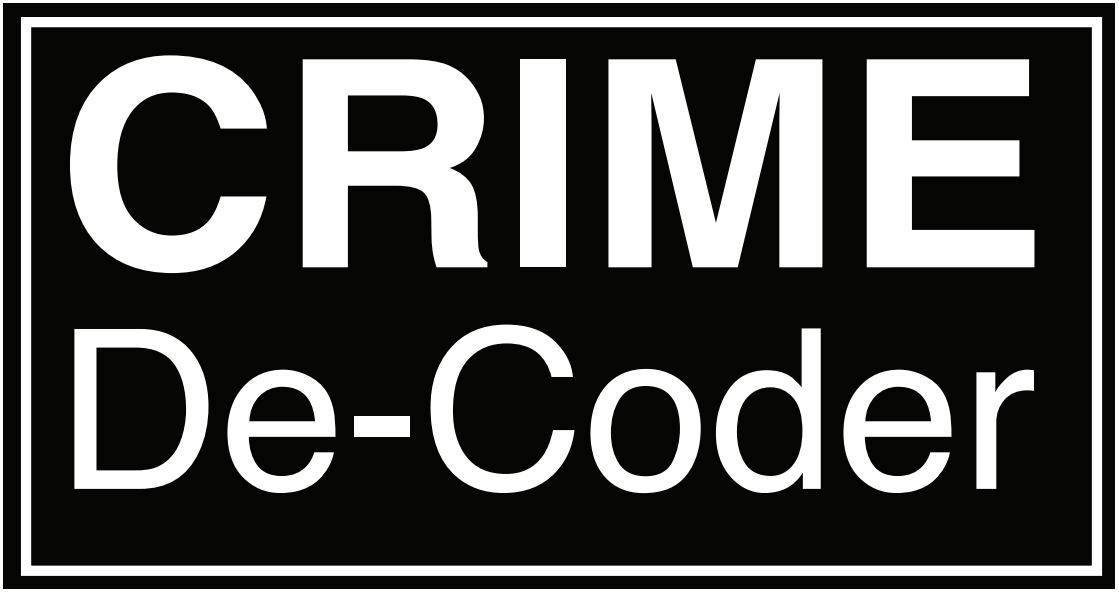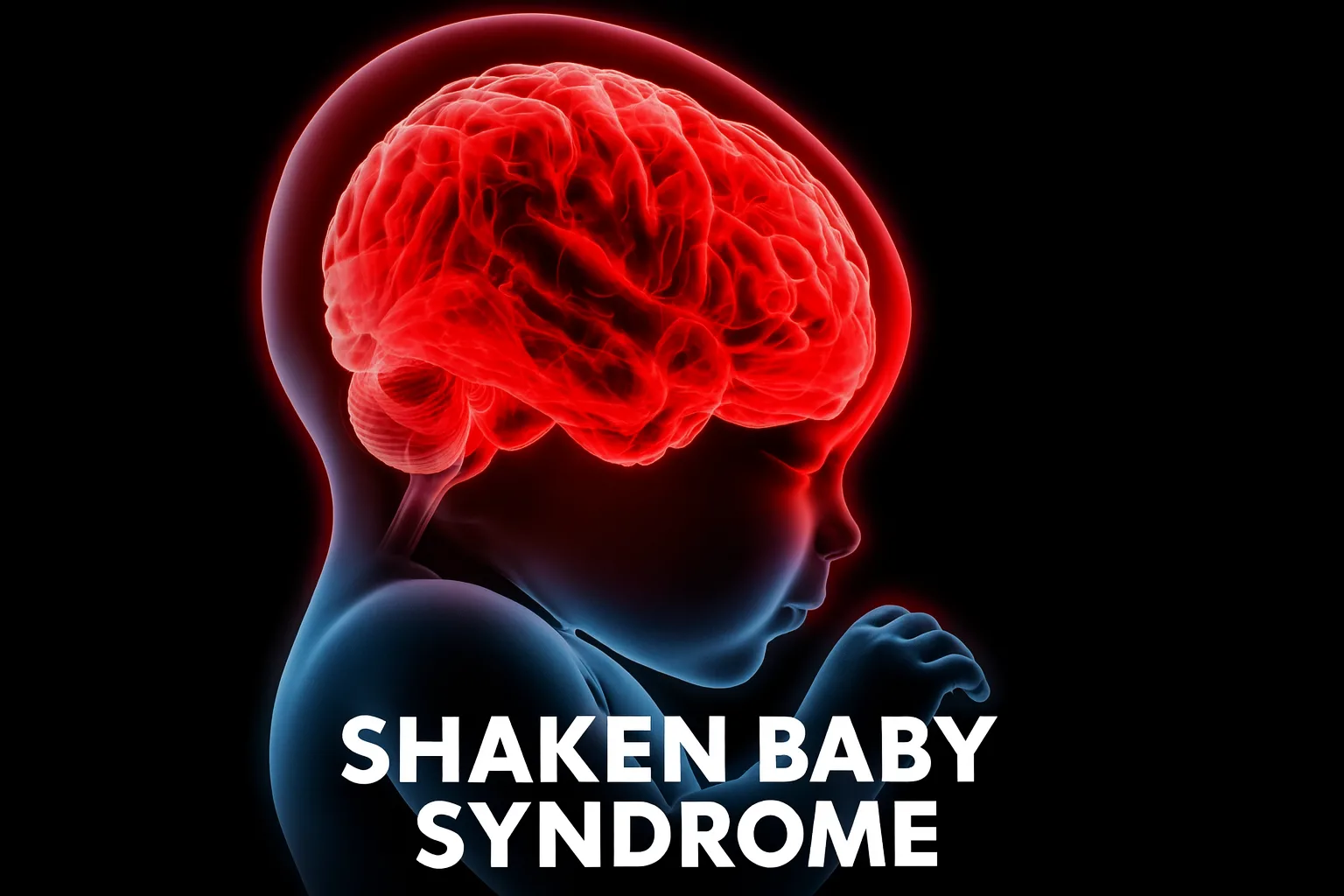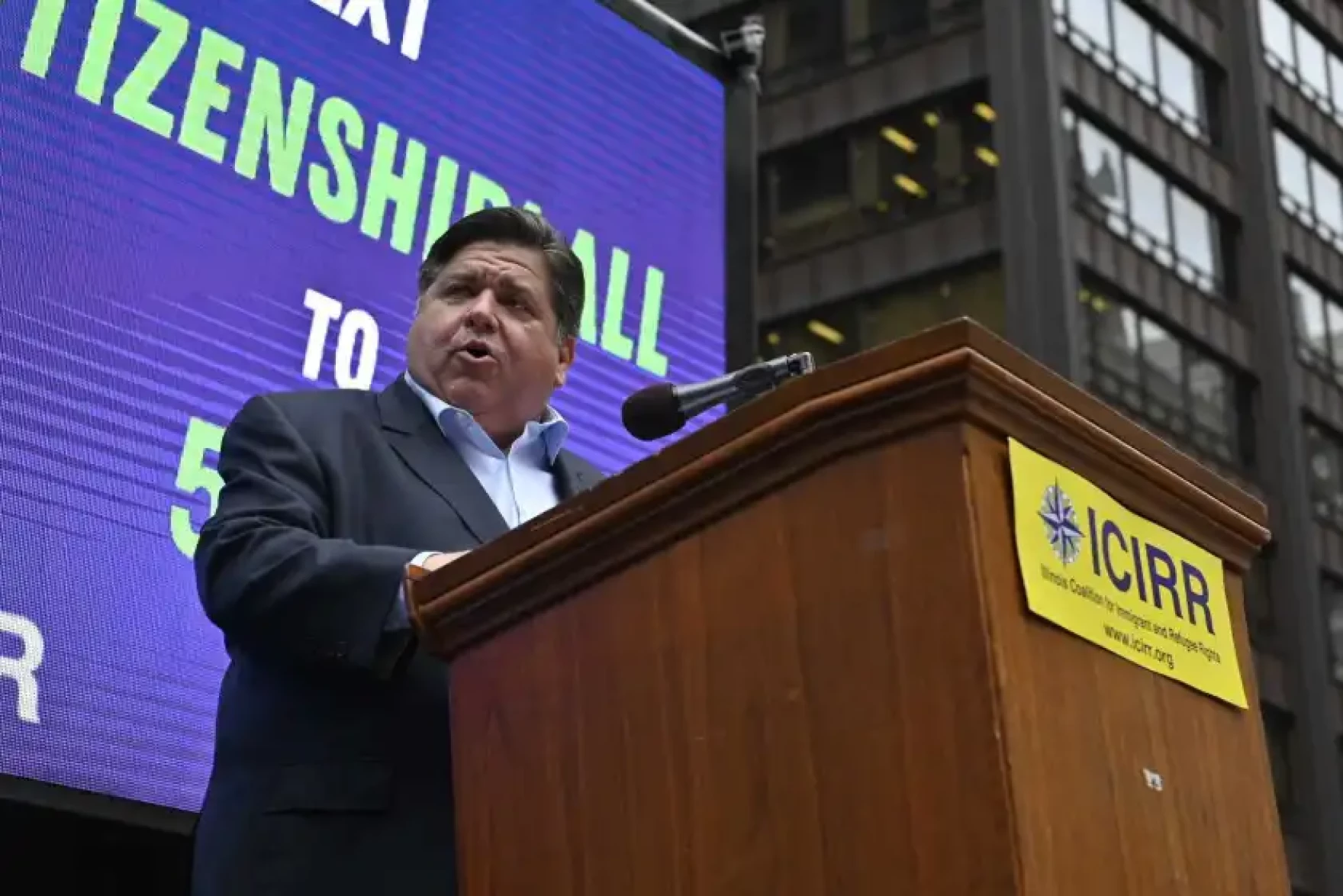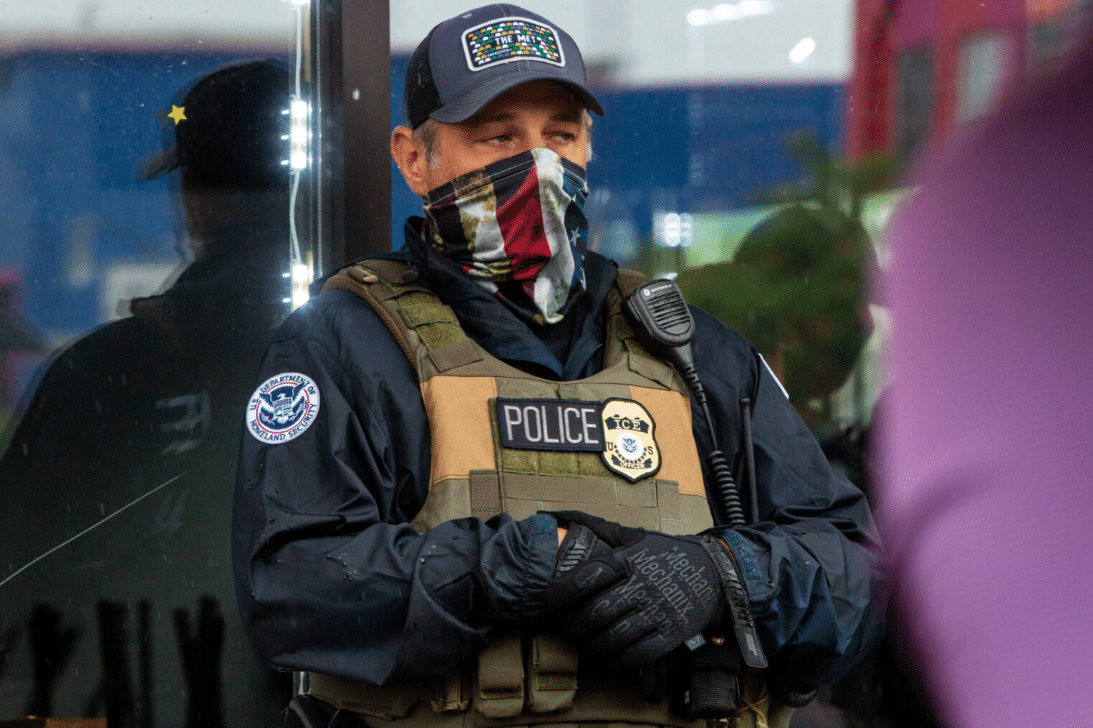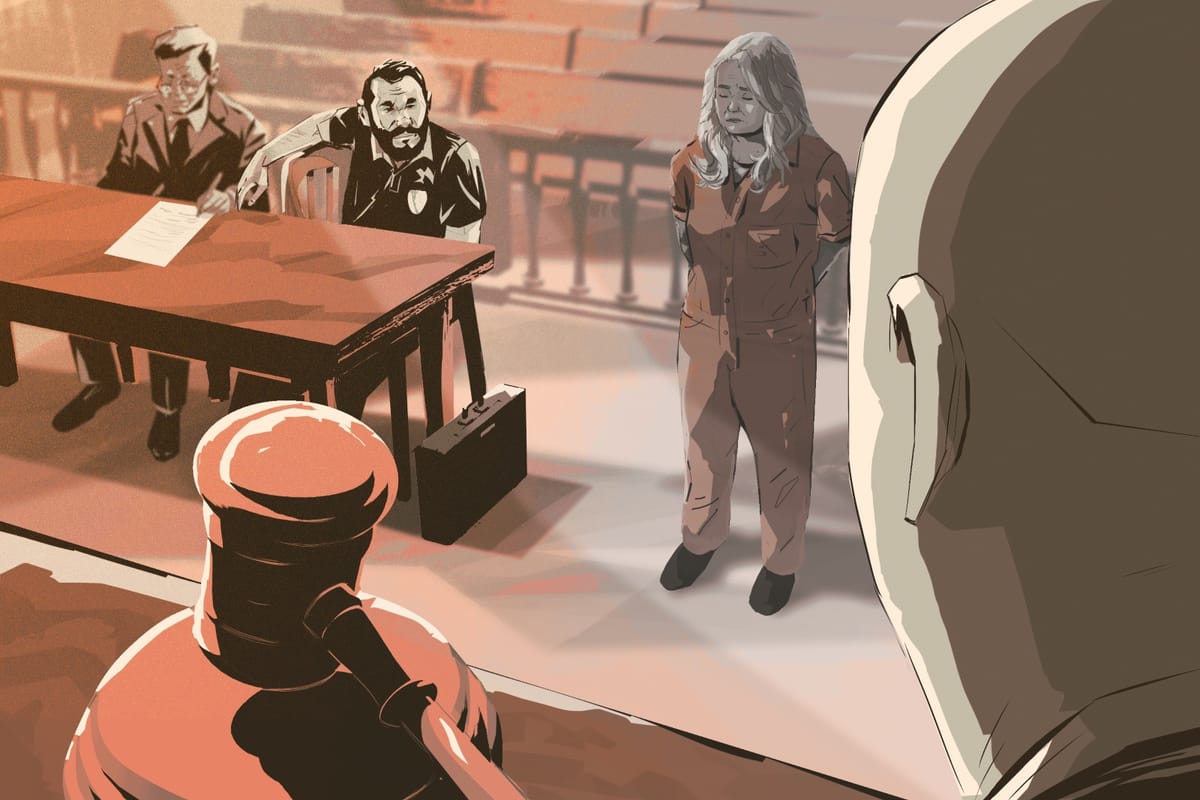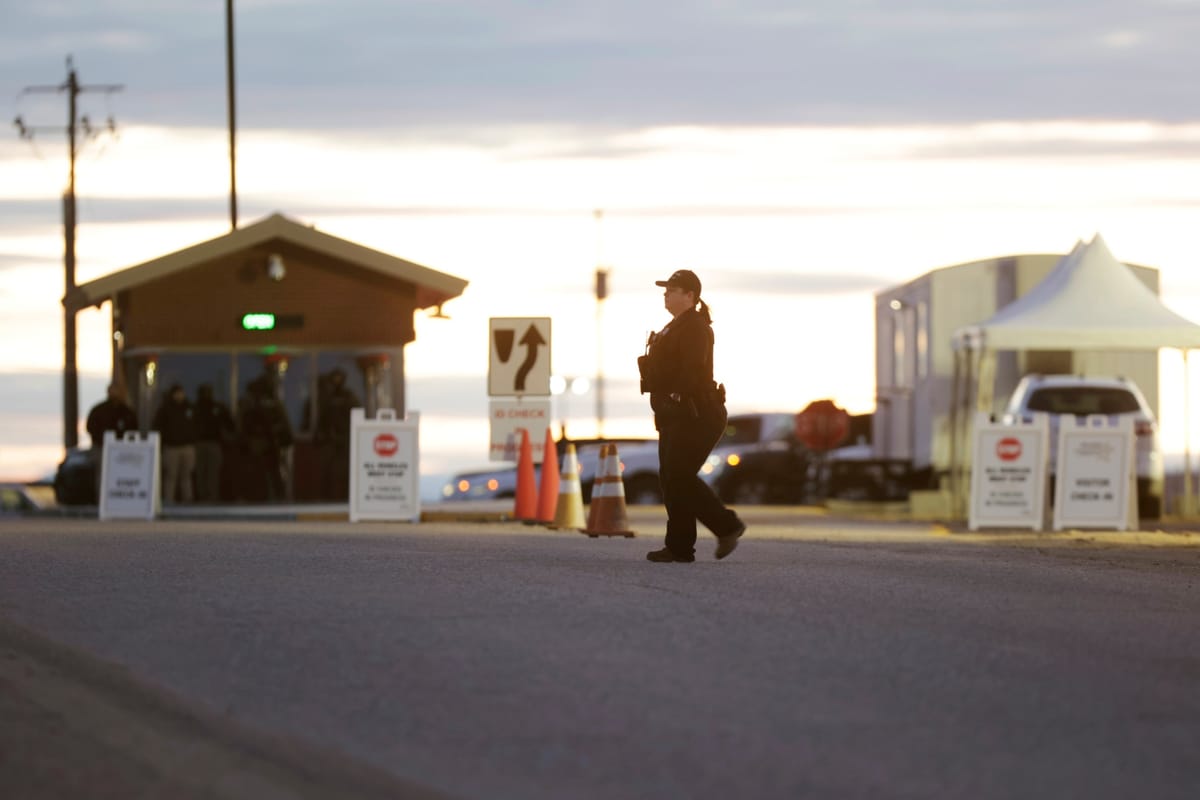Inside the ICE Detention System: How Oklahoma Facilities Use Legal Limbo to Pressure Deportations
ICE and private prison companies are rapidly expanding Oklahoma's detention infrastructure as federal policy subjects most immigrants to mandatory detention without bond hearings. CoreCivic reopened the Diamondback facility in Watonga under a $100 million contract. Attorneys say ICE transfers detainees between facilities to frustrate legal challenges seeking their release. The post Inside the ICE Detention System: How Oklahoma Facilities Use Legal Limbo to Pressure Deportations appeared first...| Oklahoma Watch
Oklahoma Becomes ICE Arrest Hub as Federal Policy Drives Enforcement Explosion
Oklahoma has become an ICE arrest hub after Gov. Kevin Stitt deputized state agencies and 28 local law enforcement agencies signed federal agreements. A Chinese man with a legal work permit and pending asylum case was arrested by Highway Patrol after calling 911 for help in a rollover accident. The post Oklahoma Becomes ICE Arrest Hub as Federal Policy Drives Enforcement Explosion appeared first on Oklahoma Watch.| Oklahoma Watch
Second Stillwater Teen Faces Rape Charges as Unequal Treatment Questions Mount
Payne County prosecutors are pursuing a sexual assault case against 18-year-old Canyn Porter differently than they handled Jesse Butler's case last year. Butler received counseling and community service after being certified as a youthful offender. Prosecutors are opposing Porter's request for youthful offender status despite similar charges involving a teenage victim. The post Second Stillwater Teen Faces Rape Charges as Unequal Treatment Questions Mount appeared first on Oklahoma Watch.| Oklahoma Watch
Parole rates in Massachusetts on the rise
The 2024 paroling rate in Massachusetts was 68%, according to a presentation by Gomez to the Commission on Correctional Consolidation and Collaboration. The body of lawmakers, stakeholders and officials has been tasked with determining options for collaboration and consolidation among the Department of Correction, county sheriffs, the Parole Board and the Office of Community Corrections.| CommonWealth Beacon
Leaked ICE memo says agents can enter houses without judge’s warrant, in likely violation of U.S. Constitution
Author: Devin Windelspecht, MSc January 30, 2026 HRRC expresses intense alarm as to the continued deterioration of American civil rights under the Trump administration. We stress that weakening the Fourth Amendment of the U.S. Constitution by allowing immigration officials to forcibly enter a residence without a warrant signed by a judge represents a severe blow to the rights of all Americans, citizens and noncitizens alike, and sets a dangerous precedent that can lead to unchecked abuse of...| Human Rights Research Center (HRRC)
Human rights lawyer Imaan Mazari and husband arrested in Pakistan
Author: Peter Clarkin, MA January 29, 2026 HRRC strongly condemns the lengthy and unjust sentencing imposed by a Pakistani court on human rights lawyers, Imaan Mazari and Hadi Alit Chattha. The pair were victims of an unlawful arrest and were forced into an illegitimate trial, leading to a 17-year prison sentence. Immediate pressure must be put on the government of Pakistan to ensure the release of Mazari and Chattha. Human rights lawyer Imaan Mazari (right) with her husband and fellow law...| Human Rights Research Center (HRRC)
After 65 Years, Belgium Is Still Reckoning with the Assassination of Patrice Lumumba
Author: Vera Rousseff January 28, 2026 HRRC stands with the relatives of Patrice Lumumba in their efforts to hold Étienne Davignon accountable for his role in the assassination of the Congolese independence leader and former prime minister. We firmly believe that former colonial powers should be held responsible for crimes committed against their colonies, regardless of how much time has passed since the crimes were carried out. Patrice Lumumba's relatives participate in a press conference...| Human Rights Research Center (HRRC)
Access to Justice as a Human Right in Ethiopia: Challenges and Pathways to Reforms
Author: Telila Berhanu Amenu January 28, 2026 A Comprehensive Approach The concept of access to justice extends far beyond the mere ability to access courts or legal institutions. [1] It encompasses both legal and social dimensions, ensuring that individuals have the means to effectively protect their rights, seek remedies for grievances, and participate in legal processes in a fair and equitable manner. [2] In both legal and social terms, access to justice represents a broader right that...| Human Rights Research Center (HRRC)
Activist Mohamed Adel Faces Alleged Prison Assault Amid Worsening Health and Prolonged Repression
Author: Aamnah Fatima Khan January 27, 2026 HRRC strongly condemns the reported assault and ill-treatment of detained Egyptian activist Mohamed Adel and the authorities’ failure to provide for his safety and health while in prison. These abuses reflect a broader pattern of repression, impunity and disregard for the rule of law, for which the responsible state institutions must be held fully accountable. Mohamed Adel [Image source: Committee for Justice] Egyptian and international human righ...| Human Rights Research Center (HRRC)
When Empathy Runs Out: Understanding Moral Exhaustion in Trauma-Exposed Professionals
A forensic and trauma-psychology analysis of moral exhaustion—the quiet burnout that emerges when those who protect, heal, or investigate humanity lose faith in its goodness.| CPTSDfoundation.org
The Semantics of Jury Nullification: How Terminology Shapes (and Misshapes) the Jury’s Role
Sometimes what we call a practice can matter just as much as the practice itself. Jury nullification has a storied history dating back to... The post The Semantics of Jury Nullification: How Terminology Shapes (and Misshapes) the Jury’s Role appeared first on Harvard Law Review.| Harvard Law Review
Texas Congressman Blasts Anti-ICE Movement
U.S. Rep. August Pfluger called out left-wing rhetoric that is incentivizing harm to federal agents. The post Texas Congressman Blasts Anti-ICE Movement appeared first on Texas Scorecard.| Texas Scorecard
AG Sues North Texas Smoke Shops for Selling Illegal-Strength Kratom
The DEA has threatened to classify kratom as a Schedule 1 substance, the same as heroin. The post AG Sues North Texas Smoke Shops for Selling Illegal-Strength Kratom appeared first on Texas Scorecard.| Texas Scorecard
Houston Doctor Indicted Over Alleged Falsification of Transplant Records - Texas Scorecard
Federal prosecutors have charged a former Memorial Hermann surgeon with making false statements in patient records in order to block access to organ transplants.| Texas Scorecard
An Idaho prison guard preyed on women. The system hid it
This is the first installment in a new InvestigateWest series called “Guarded by Predators,” exposing rape and abuse by Idaho’s prison guards and the system that shields them| InvestigateWest
Two Colville women were booked into a rural Washington jail. It became a death sentence
Critics say WA jails are letting opioid users suffer from withdrawals, leading to preventable deaths| InvestigateWest
Lawsuit alleges Bureau of Indian Affairs officers “executed” unarmed Shoshone-Paiute man in Idaho
The lawsuit claims Bureau of Indian Affairs officers lacked jurisdiction when they pursued, killed Cody Whiterock| InvestigateWest
Two Idaho guards avoid charges for alleged inmate sex abuse
Investigative files reveal allegations from several women that weren’t enough for criminal consequences| InvestigateWest
Court Watch: Judge Raises Concerns over Legal Basis for Ending Mental Health Diversion
A Yolo County Superior Court judge questioned the legal basis for terminating a woman's mental health diversion, citing the need for a mental health professional's opinion and evidence of criminal conduct, as the defendant's attorney argued that recovery is not linear.| Davis Vanguard
COURT WATCH: Judge Keeps $200,000 Bail Despite Defense Citing Inability to Pay and Stabbing Victimization
Judge Karen L. Robinson denied a request to reduce the $200,000 bail for an accused person facing multiple felony charges, citing the alleged conduct as a danger to the public and rejecting defense arguments that the accused could not afford bail.| Davis Vanguard
“You’re Not Going to Investigate a Federal Officer”
The post “You’re Not Going to Investigate a Federal Officer” appeared first on ProPublica.| ProPublica
Gov. Healey Proposes Eliminating Rape Statute of Limitations for DNA Matches — ProPublica
A WBUR-ProPublica investigation found that no DNA match, testimony or even confession could allow a rape to be prosecuted after the state’s 15-year deadline. The governor aims to “help survivors who have had to wait far too long for justice.”| ProPublica
Illinois attorney general wins state’s first civil hate crime lawsuit
Illinois Newsroom - The win came among dozens of lawsuits the state has filed against the Trump administration in the past year. The post Illinois attorney general wins state’s first civil hate crime lawsuit appeared first on IPM Newsroom.| IPM Newsroom
Search warrant reveals FBI is investigating former Carlyle police chief
Illinois Newsroom - The FBI is investigating Pingsterhaus, a 30-year law enforcement veteran, for possible wire fraud and theft of federal funds, according to the search warrant, obtained by Capitol News Illinois and the Illinois Answers Project. The post Search warrant reveals FBI is investigating former Carlyle police chief appeared first on IPM Newsroom.| IPM Newsroom
Couple Sentenced After Fake ID Bust by Dallas ICE
According to ICE, the manufacturing of fake identification documents by the couple took place from August 2020 until their arrest in February 2025. The post Couple Sentenced After Fake ID Bust by Dallas ICE appeared first on Texas Scorecard.| Texas Scorecard
Two Texas Democrat DAs Join Prosecutors Plotting to ‘Fight’ Feds
Soft-on-crime Democrat district attorneys in Dallas and Austin are founding participants in the anti-ICE project. The post Two Texas Democrat DAs Join Prosecutors Plotting to ‘Fight’ Feds appeared first on Texas Scorecard.| Texas Scorecard
Harris County Sergeant Faces Federal Charges in Online Child Exploitation Case
A Harris County Sheriff’s Office sergeant is facing both state and federal charges after authorities say he engaged in explicit online communications with someone he believed to be a 13-year-old child. The post Harris County Sergeant Faces Federal Charges in Online Child Exploitation Case appeared first on Texas Scorecard.| Texas Scorecard
El Paso Man Sentenced for Smuggling Illegal Aliens
Oscar Carrillo was charged with smuggling illegal aliens and constructing cross-border tunnels after federal agents discovered a tunnel in El Paso. The post El Paso Man Sentenced for Smuggling Illegal Aliens appeared first on Texas Scorecard.| Texas Scorecard
Detroit Board of Police Commissioners | Board of Police Commissioners Meeting - February 5, 2026 | Live reporting
The board approved the appointment of Lieutenant Damien Manning to the position of Captain, noting only one sustained complaint made against him in 25-plus years. A commenter alleged a conflict of interest with Conrad Mallett advising the board while providing cousel to officers.| Detroit Documenters Reporting
Against the Death Penalty
The last execution in Great Britain took place in 1964, but Tory politicians still periodically raise the possibility of reinstating capital punishment in tub-thumping speeches designed to convince the public ...| Areo Magazine
Drug dogs should not be unleashed to authorize apartment searches, a SCOTUS brief argues
A potential Supreme Court case raises the question of whether police can justify home searches by deploying drug dogs at apartment doors.| Reason.com
Don Lemon’s arrest looks like an assault on freedom of the press
A federal indictment accuses Lemon and another journalist of conspiring with protesters who disrupted a St. Paul church service.| Reason.com
After Months in ICE Detention, Morehouse Alum Is Deported to Mexico
After Morehouse College alum Alex Maganda was picked up by immigration agents last June, his Spelhouse community rallied for his release with the hashtag #FreeAlexMaganda. It was an urgent call to Morehouse College and Spelman College’s network to help their former classmate, who had been brought to America at the age of 5 by his […] The post After Months in ICE Detention, Morehouse Alum Is Deported to Mexico appeared first on Capital B News - Atlanta.| Capital B News – Atlanta
Family of Rapper Shot 17 Times by Atlanta Officer Demands Accountability
Family and friends of Linton Blackwell took to the podium at City Hall on Monday to express their frustration with the Atlanta City Council over the lack of accountability for police officers who use lethal force. “I want to understand why this officer, Gerald Walker, is not being held accountable for my brother’s death. He […] The post Family of Rapper Shot 17 Times by Atlanta Officer Demands Accountability appeared first on Capital B News - Atlanta.| Capital B News – Atlanta
College Park Leaders Seek Answers as ICE Activity Raises Community Fears
While much of the country has eyes trained on the unrest in Minneapolis after the shooting death of Alex Pretti by U.S. Border Patrol agents, some in metro Atlanta are concerned as U.S. Immigration and Customs Enforcement leaders appear to be expanding operations in College Park. Elected officials in the southwest Atlanta suburb say the […] The post College Park Leaders Seek Answers as ICE Activity Raises Community Fears appeared first on Capital B News - Atlanta.| Capital B News – Atlanta
After Viral Assault Video, Students Push AUC Leaders for Accountability
There is always a renewed sense of camaraderie as students at Clark Atlanta University, Spelman College, and Morehouse College return to campus and settle into the new spring semester. However, this year there’s an underlying tension running across the Atlanta University Center. It only takes a mention of the now-viral video of Morehouse student Matthew […] The post After Viral Assault Video, Students Push AUC Leaders for Accountability appeared first on Capital B News - Atlanta.| Capital B News – Atlanta
With debt collection lawsuits rising, here’s what you need to know
Get to know the research on debt collection lawsuits, racial disparities in judgments, and a big slice of consumer debt: medical debt.| The Journalist's Resource
Victim’s Daughter, Former Juror Urge Mercy as Alabama Nears Execution of Man Who Did Not Pull Trigger - Davis Vanguard
A former juror and the daughter of the victim are urging Alabama Governor Kay Ivey to halt the impending execution of Charles "Sonny" Burton, who was convicted of felony murder but did not fire the fatal shot.| Davis Vanguard
New Data Undercuts Claims Behind Expanding Pretrial Detention, Shows 92% Court Return Rate without Cash Bail - Davis Vanguard
The Bail Project has released data showing that 92% of people released without cash bail returned to court, challenging claims used to justify expanding pretrial detention and providing evidence for a fairer and more humane pretrial system.| Davis Vanguard
Nathan Whetton: Civil Disobedience, Protest and the Jury Trial Reforms
On 2 December 2025, the Lord Chancellor and Deputy Prime Minister David Lammy announced significant reforms to criminal trials in […]| UK Constitutional Law Association
Hal McNulty: Forgetting Our Democratic Settlement: Lammy’s Plan to Curb Jury Trials
“I honestly think if I hadn’t had those normal people to basically say, ‘You gotta be joking, no […]| UK Constitutional Law Association
After a death at an El Paso ICE facility was ruled a homicide, will prosecutors pursue a criminal case?
Because Geraldo Lunas Campos died at a military base, the El Paso District Attorney says any criminal case may fall to federal prosecutors. But criminal law experts say the state doesn’t have to defer to them.| The Texas Tribune
As the son of a cop who took a costly stand, I can say to ICE agents: You can say no.
My father was a New York police officer. When he was ordered to raid gay bars and arrest patrons, he decided he could not do it. The post As the son of a cop who took a costly stand, I can say to ICE agents: You can say no. appeared first on America Magazine.| America Magazine
Testimony in Opposition of HB 2256 – Expansion of Mandatory Minimums
Date: January 28, 2026 To: Chairwoman Parker and Members, House Judiciary Committee From: Gwen Smith-Moore, Criminal Justice Policy Manager, Empower Missouri RE: Opposition to HB 2256 As the largest and oldest anti-poverty advocacy organization in our state, Empower Missouri is committed to improving the quality of life for all Missouri residents through advocacy. Since our […] The post Testimony in Opposition of HB 2256 – Expansion of Mandatory Minimums appeared first on Empower Missouri.| Empower Missouri
Testimony in Opposition of HB 2637 – Expansion of Mandatory Minimums
Date: January 28, 2026 To: Chairwoman Parker and Members, House Judiciary Committee From: Gwen Smith-Moore, Criminal Justice Policy Manager, Empower Missouri RE: Opposition to HB 2637 As the largest and oldest anti-poverty advocacy organization in our state, Empower Missouri is committed to improving the quality of life for all Missouri residents through advocacy. Since our […] The post Testimony in Opposition of HB 2637 – Expansion of Mandatory Minimums appeared first on Empower Missouri.| Empower Missouri
Testimony in Support to HB 2831 and HB 2695 – Expansion of Good and Earned Time Credit
Date: January 27, 2026 To: Representative Don Mayhew and the Members of the House Corrections and Public Institutions Committee From: Jerika White, Empower Missouri RE: Support for HB 2831 and HB 2695 As the largest and oldest anti-poverty non-profit in our state, Empower Missouri is committed to improving the quality of life for all Missouri residents […] The post Testimony in Support to HB 2831 and HB 2695 – Expansion of Good and Earned Time Credit appeared first on Empower Missouri.| Empower Missouri
Testimony in Support of HB 2747 and HB 2047 – Clean Slate Automated Record Sealing Legislation
Date: January 27, 2025 To: Chairwoman Gallick and Members, House Economic Development From: Mallory Rusch, Executive Director Re: HB 2747 + HB 2047 We are thrilled to offer testimony in support of HB 2747 + HB 2047, which we’ll be referencing as Clean Slate legislation. Our nation’s criminal justice system was conceived and implemented long […] The post Testimony in Support of HB 2747 and HB 2047 – Clean Slate Automated Record Sealing Legislation appeared first on Empower Missouri.| Empower Missouri
Show-Me the Data: The Weak Relationship Between Evidence and Criminal Justice Policy in Missouri
Facts and rhetoric are frequently misaligned when it comes to anti-poverty policy. This is especially true in the criminal justice arena, where public perceptions of crime have always been more important to policymakers than what the evidence shows. This translates to policies that are fear-based, rather than evidence-based: longer prison sentences for more offenses, more […] The post Show-Me the Data: The Weak Relationship Between Evidence and Criminal Justice Policy in Missouri appeared f...| Empower Missouri
Action Alert: We Need Sentencing Reform, Not New Prisons
House Bill 2256 and House Bill 2637 would drastically increase minimum prison terms in our state, keeping people behind bars for significantly longer. Research shows that this will increase costs with no reduction in crime. Please use this form to urge the members of the Missouri House Judiciary Committee to vote no on expanding prison sentences. The post Action Alert: We Need Sentencing Reform, Not New Prisons appeared first on Empower Missouri.| Empower Missouri
Action Alert: Transparency and Accountability in the DOC
House Bill 1616 establishes an oversight body for Missouri prisons that is independent, responsible to incarcerated people and their families, and fully staffed and funded. This bill will be heard in the House Corrections and Public Institutions Committee next week, and our legislators need to hear that Missourians want accountability and transparency for the Department […] The post Action Alert: Transparency and Accountability in the DOC appeared first on Empower Missouri.| Empower Missouri
Detroit Board of Police Commissioners | Board of Police Commissioners Meeting - January 29, 2026 | Live reporting
Deputy Chief Tiffany Stewart confirmed to the board that DPD's policy of not assisting ICE officers in enforcement applies to U.S. Customs and Border Protection officers as well. Conrad Mallett confirmed the BOPC will begin getting monthly reports on pending lawsuits against DPD.| Detroit Documenters Reporting
County Prosecutors Give Lurid Presentation on Sex Work Featuring Unredacted Images of Brutalized Women to Seattle Council Committee
The point of the prurient presentation: “You can’t make sex work safe,” one senior deputy prosecutor said. By Erica C.… The post County Prosecutors Give Lurid Presentation on Sex Work Featuring Unredacted Images of Brutalized Women to Seattle Council Committee appeared first on PubliCola.| PubliCola
Lawmakers Eye Parole, Civil Asset Forfeiture Reform
Lawmakers have filed dozens of criminal justice reform measures ahead of the 2026 legislative session, which kicks off Feb. 2. The post Lawmakers Eye Parole, Civil Asset Forfeiture Reform appeared first on Oklahoma Watch.| Oklahoma Watch
Louisiana Paroles Lowest Number of Prisoners in 20 Years — ProPublica
The state parole board freed 185 prisoners during Landry’s tenure, compared with 858 in the two years before he took office. Hundreds who would have been released under previous governors remain incarcerated with little chance of earning parole.| ProPublica
From $950 Theft to Six-Year Exposure: Felony Charging Raises Questions in Newport Beach Court - Davis Vanguard
A theft of $950 worth of merchandise from a California Home Depot store resulted in felony charges and warnings of up to six years in state prison for a probation violation, raising questions about charging practices in lower-level theft cases.| Davis Vanguard
Cop-assisted extortion of DWI arrestees in New Mexico included getting them drunk
A recent guilty plea reveals a new wrinkle in a long-running corruption scheme that involved bribing police officers to make drunk driving cases disappear.| Reason.com
Arizona Series of Botched Lethal Injections Highlights Debate Over Execution Methods - Davis Vanguard
Arizona's botched executions have sparked a national debate over the use of lethal injections, with questions raised about the humanity of capital punishment and the need for alternative execution methods.| Davis Vanguard
Amid Mounting Harms, Kentucky Is Ramping Up Anti-Immigrant Enforcement - Kentucky Center for Economic Policy
A growing number of local police and jails in Kentucky are entering into agreements and contracts to cooperate with ICE.| Kentucky Center for Economic Policy
Complaint against WA Rep. Tarra Simmons alleges misuse of $30,000 in campaign funds
It’s the third ethics complaint filed against her in recent months| InvestigateWest
WA crime victim orgs call for state help as falling federal funding has them at a ‘breaking point’
Nonprofits say temporary state dollars haven’t been enough to stave off cuts to sexual abuse and domestic violence programs| InvestigateWest
Part time product design positions to help with AI companies | Andrew Wheeler
Recently on the Crime Analysis sub-reddit an individual posted about working with an AI product company developing a tool for detectives or investigators. The Mercor platform has many opportunities…| Andrew Wheeler
The Syndrome: Uncovering the Controversy of Shaken Baby Syndrome - Davis Vanguard
A documentary, The Syndrome, examines the medical and legal consequences of shaken baby syndrome, questioning the scientific basis of the diagnosis and highlighting the lack of substantial scientific evidence.| Davis Vanguard
Opinion | ICE ignores hard lessons from Rodney King beating in LA
Federal immigration agents are forgoing the basics that LA police espouse after their years of ignominy: de-escalation, accountability and protecting and serving.| CalMatters
DHS Whines That Protesters Won’t Let Federal Agents Use Any Bathrooms | The New Republic
Minneapolis residents are mounting an amazing fight against the ICE and Border Patrol agents terrorizing their city.| The New Republic
Alaska Lawmaker Calls for More Prosecutors and Public Defenders to Reduce Delays — ProPublica
A Judiciary Committee chair said stories by the Anchorage Daily News and ProPublica about sluggish court proceedings “stab my heart.” Fixing the problem will take more than a state Supreme Court order last year limiting new delays, he said.| ProPublica
The Supreme Court’s entire framework for 2nd Amendment cases is coming apart, in Wolford v. Lopez | Vox
It’s obvious that the Court isn’t actually trying to come up with a legal rule that makes sense.| Vox
United States v. Duarte - Harvard Law Review
After New York State Rifle & Pistol Ass’n v. Bruen, § 922(g) challenges proliferate. Enacted as the “centerpiece” of the Gun Control Act of 1968,...| Harvard Law Review
After New York Focus Investigation, Governor and Lawmakers Call for Consequences in Horse Doping Case
State regulators ignored FBI evidence of horse drug purchases for years. That was a “huge failing,” a key assemblymember said.| New York Focus
More Subway Cops, No Prison Reforms: State of the State 2026
On criminal justice, there were notable omissions in the governor’s address.| New York Focus
Help Us Investigate Conviction Integrity Units in New York
Our investigation into conviction integrity units reveals that they reinforce a broken system. Help us expand on this reporting.| New York Focus
Covering the 2026 State of the State
Here's what our reporters will be watching for during Governor Kathy Hochul's agenda-setting address that will kick off state budget negotiations.| New York Focus
The State Is Locking Kids in Solitary Confinement Without Toilets, Lawsuit Alleges
Office of Children and Family Services facilities keep youth in small cells for days or weeks at a time, violating state regulations, the suit claims.| New York Focus
5 Takeaways From Our Investigation Into Horse Drugging
New York racing regulators have failed to take action against drug buyers for years, even after federal law enforcement gave them clear evidence of illegal activity.| New York Focus
FBI Wiretaps, Illegal Drugs, and Dead Horses
The feds gave New York key evidence on horse racing’s largest doping ring. State regulators have done nothing with it for years.| New York Focus
Waiting for the Out writer Dennis Kelly: 'All you can hear in prison is chaos' - Big Issue
Waiting for the Out follows a philosopher who begins teaching a class of men in prison, based on the experiences of Andy West.| Big Issue
Nurse Accused of Harming NICU Babies Expected to Plead Guilty - Capital B News
Erin Strotman was charged last year in connection to mysterious injuries that appeared on newborns dating back several years, officials said.| Capital B News
Small town school budget takes a hit following private prison purchase
GERONIMO, OK - The purchase of Oklahoma’s last privately operated prison has been considered a major win as a result of the 60th legislative session. However, during the transaction, lawmakers overlooked the potential side effects this could have on taxes and on one small school district’s budget. In| Dark Roast Report
Year in Review 2025 and AI Predictions | Andrew Wheeler
For a brief year in review, total views for the two different websites have decreased in the past year. For this blog, I am going to be a few thousand shy of 100,000 views. (2023 I had over 150k vi…| Andrew Wheeler
Butler Snow report clears MNPD of misconduct allegations - Nashville Banner
An investigation clears the Metro Nashville Police Department of misconduct allegations. Report finds no evidence of wrongdoing or policy violations.| Nashville Banner
The “sex Addiction” Defense: Should Cheaters Get Sympathy or Scrutiny? - Cheating Husband Secrets
Struggling to decide if the “sex addiction” defense warrants sympathy or scrutiny, society must weigh compassion against accountability—continue reading to explore this complex debate.| Cheating Husband Secrets
Here’s Every Bill That Kathy Hochul Vetoed in 2025
One hundred and forty laws that almost were.| New York Focus
Over 50 Incarcerated People Wrote to Us About Their Innocence Claims. Some Had Waited Years for a Conviction Review.
The letters paint a picture of a CIU process rife with roadblocks, especially for applicants who didn’t have lawyers.| New York Focus
A Judge Tossed a Prison Sex Abuse Lawsuit Over Typos. Hundreds More Dismissals Could Be Coming.
The state plans to ask a court to dismiss some 500 prison sexual assault lawsuits for not strictly abiding by filing requirements.| New York Focus
Department of Justice sues Pritzker, Raoul over law barring federal immigration actions at courthouses - IPM Newsroom
The law, signed by Pritzker this month, bars immigration enforcement from courthouses and opens the door for easier legal action against federal agents over alleged civil rights infractions.| Illinois Newsroom
Unchecked prison sex abuse, Christian nationalist influence and police welcoming ICE — a year of investigative reporting in Idaho
In 2025, InvestigateWest reporters uncovered a culture of abuse within Idaho’s women’s prisons that has enabled sexual abuse by guards. We also tracked the ways Idaho officials are helping the Trump administration escalate its mass deportation campaign and the influence of a Christian Nationalist group that| InvestigateWest
Hospital failures, biased court advocates and buried teacher misconduct — a year in investigative reporting in Washington
In 2025, InvestigateWest reporters broke stories that continue to resonate across Washington communities, from reporting that exposed a Spokane hospital’s safety violations that endangered suicidal patients to teacher misconduct allegations kept quiet by Mercer Island School District. Check out some of our best reporting about Washington| InvestigateWest
Idaho’s efforts to confront prison sexual abuse hampered by Trump cuts
Cuts to Prison Rape Elimination Act Resource Center result in less state support for training, guidance and grants| InvestigateWest
Our 10 most popular posts in 2025
Wondering which of our pieces drew the most readers this year? Wonder no more! Here's a list of our 10 most-read pieces of 2025. The post Our 10 most popular posts in 2025 appeared first on The Journalist's Resource.| The Journalist's Resource
Former Prosecutor Discusses the Possibility of Trump Pardoning Diddy - The Daily Blaze
INTERVIEW ON THE PRICE OF BUSINESS SHOW, MEDIA PARTNER OF THIS SITE. Recently Kevin Price, Host...| The Daily Blaze
How Online Learning Makes Advancing in Criminal Justice More Accessible - Online Degrees & Programs | Kent State University
Balancing career aspirations with personal and professional commitments can be challenging, especially for those looking to advance in the criminal justice field. However, the rise of online learning has made it more accessible than ever for individuals to pursue higher education while managing…| Kent State Online
One Year Since Robert Brooks’s Killing, Prison Chaos Has No End in Sight
The murder has led to more tumult than New York’s prison system has seen since the Attica prison uprising over five decades ago.| New York Focus
In Washington, youth of color face harsher sentences
More than 80% of children charged as adults in state court are not white, data shows| InvestigateWest
State Prisons Are Turning Away Visitors After Scanners Pick Up Their Tampons
Guards demanded body scanners to cut down on contraband. Now they’re turning visitors away over their hygiene and medical supplies.| New York Focus
Should ICE Agents Be Required to Identify Themselves?
In recent months, videos of Immigration and Customs Enforcement (ICE) agents conducting operations while wearing masks or face coverings have sparked intense debate about law enforcement accountability and transparency.| Close Up Foundation
The Good Ol’ Boys and the Bad People
Since 2000, the incarceration rate for rural Americans has skyrocketed past that of their urban counterparts. Why? The post The Good Ol’ Boys and the Bad People appeared first on Humanities Washington.| Humanities Washington
Mine resistant vehicles more parade float than an enforcement tool
The Frontier requested travel logs for all of the mine-resistant vehicles in use by Oklahoma law enforcement, but many do not keep such records. The post Mine resistant vehicles more parade float than an enforcement tool appeared first on The Frontier.| The Frontier
In Idaho women’s prisons, guards get away with sex abuse
A yearlong investigation finds rampant sexual abuse by guards, systemic cover-ups, and punishment for victims| InvestigateWest
How Idaho’s prison sex abuse law protects predatory guards
When guards are charged, plea deals offer leniency| InvestigateWest
Prison board says Idaho should strengthen sex abuse law
The Department of Correction also plans to update its staff sexual misconduct policy and better educate inmates on their rights| InvestigateWest
Restorative Justice and Prison Education as Transformative Visions of Justice | Contending Modernities
And for just a second I felt that transformative flash. I felt that maybe this book has the power to stop bullets.| Contending Modernities












